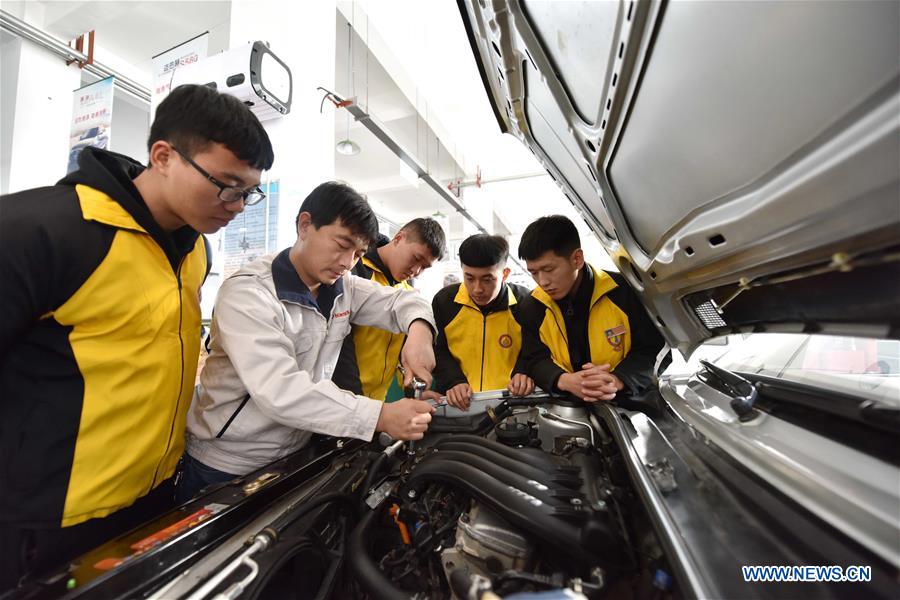Education giant Pearson to expand vocational training in China market


The world-leading educational group Pearson Plc is expanding its business in the vocational training sector in China, boosted by the rising demand for skilled professionals needed both in China and in economies participating in the Belt and Road Initiative.
Pearson CEO John Fallon said that as a global learning company and the largest awarding body for academic and vocational qualifications in the United Kingdom, Pearson's professional qualification training courses for BTEC assists learners by combining knowledge and skills, and applying both to real life scenarios to enable students to progress through university, further their education and gain employment.
BTEC stands for Business and Technology Education Council, a British organization formed in 1984 that provides various qualifications for a wide range of vocational courses.
Fallon said Pearson has made efforts to introduce and localize the BTEC content for the needs of local employers.
"We've taken what we have learned and adapted it for specific needs in China," he said.
Pearson said the courses will be provided partly online given the popularity of mobile terminals, and help Chinese vocational talent expand their job-seeking opportunities in BRI countries and regions in various sectors.
Fallon said it is important how to learn throughout a career as many jobs and skills now can be replaced by artificial intelligence or automation.
"Current jobs will continue to change and will be different," he said.
The National Center for Schooling Development Program, a vocational development center under the Ministry of Education of China and Centers of Excellence of UK, have established a Skills Belt and Road International Talent Hub Program in 2018 to serve bilateral cooperation in skills education between the two countries.
The goal of the program is to set up more global talent hubs by partnering with vocational educational institutions in China. These hubs will provide students with global educational content and services.
Fallon said he is impressed by the efforts of the Chinese government in vocational and technical education.
"Favorable policies, funds and inclusiveness in better global practices will lead to the success of vocational education reform in China," Fallon said.
Vocational education is playing a major role in expanding employment in China, a report said.
The report co-released by the Shanghai Academy of Educational Sciences and MyCos found the employment rate of Chinese students graduated from vocational schools remained stable at 92 percent six months after their graduation. The monthly salary of vocational graduates increased 76.2 percent three years after their graduation.




































